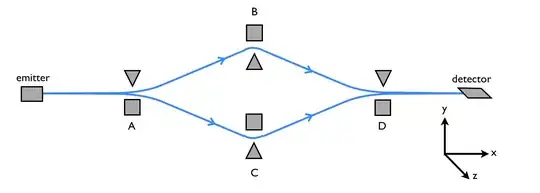Background:
In the SG experiment, an inhomogenous magnetic field affects a force on particles passing between two magnets.
"Measurement" takes place when a screen is placed on one end, blocking one of the states. The final measurement we perform (spin state of particles exiting) is heavily dependent on whether we perform a measurement or not, whether by blocking particles exiting the device or by blocking particles by setting up a screen within a modified SG device

The interaction between the particles and magnets should also exert a force on the magnets, causing them to move slightly.
The motion of these magnets seems to not affect the outcome of the experiment significantly, yet that would imply that the motion of the magnets could be measured without affecting the outcome of the experiment.
This seems at odds with Heisenberg's uncertainty principle, that we are getting information for free.
My Professor tells me that the force exerted on the magnets by the particles is so minuscule that it cannot be measured (I assume it is similar to how we can't measure particles' momentum and position simultaneously, because any photons we shoot at the particle will end up imparting change?)
What's going on here? I wanted to double check here and see where I went wrong with my assumptions.